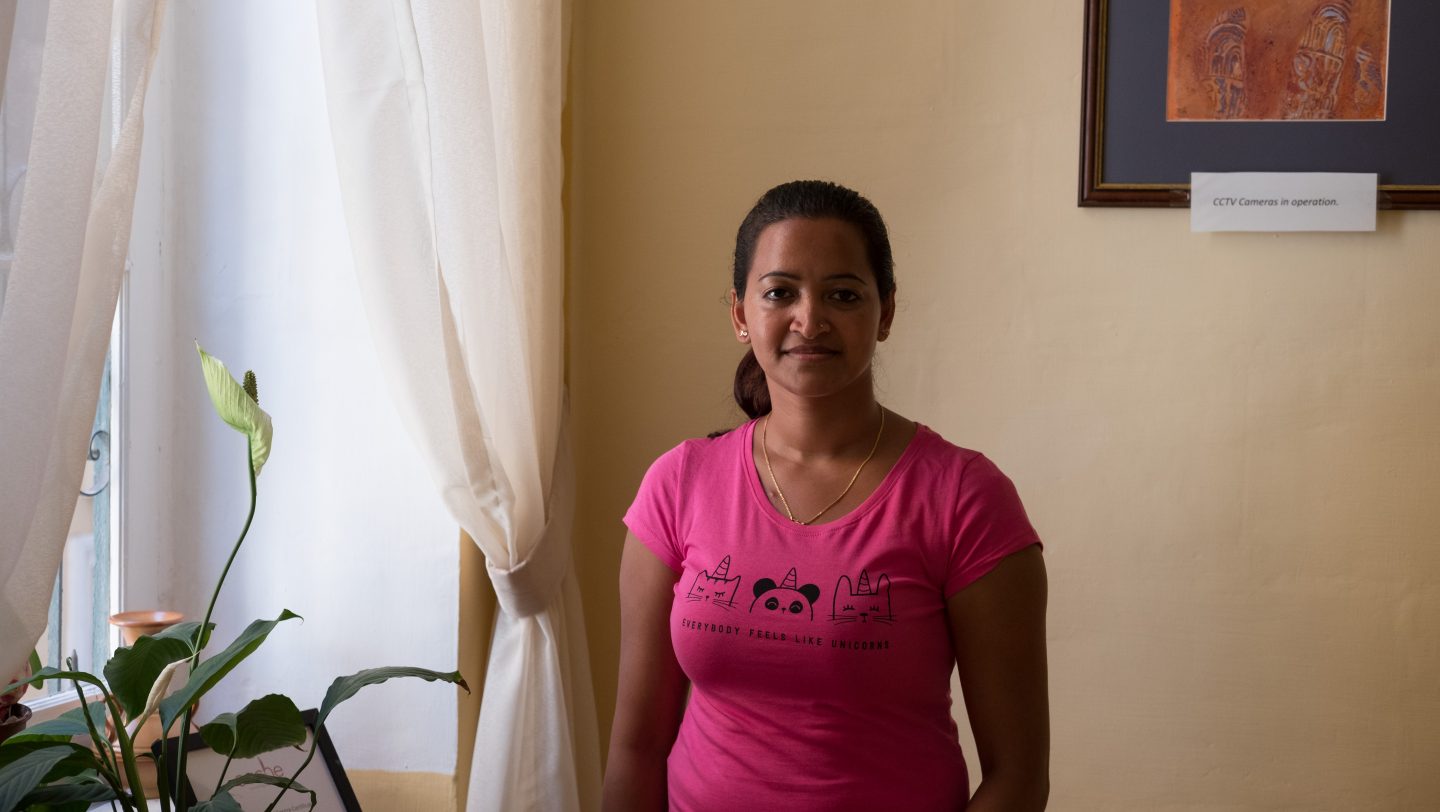A free training course in care work has given refugee and migrant women the opportunity to gain a useful qualification and the prospect of a more independent future. UNHCR Malta met with six women who studied to be carers with the support of the Jesuit Refugee Service (JRS). Stable work […]
Refugee and migrant women getting qualified as carework professionals.
© UNHCR/Joanna Demarco
Stable work and job satisfaction provide a sense of belonging in society, especially for refugees and migrants trying to rebuild their lives in a new country. For refugee and migrant women, gaining access to the labour market can be challenging, and JRS Malta, implementing partner of UNHCR, identified this as an issue among a number of women they support.
“Employment is key in terms of financial independence and integration, and we realised that more specialised support was needed… because of the many different obstacles faced.”
Julian Caruana, Psychosocial Team Coordinator at JRS
“There’s a lot of pressure on women, because they need to take care of the family. They might come to Malta with less job experience and less language skills than men, on average, because they are given less importance in the education system of the countries they come from.”
In addition, says Julian, there are cultural barriers that affect their access to employment, like “discrimination based on what they wear, such as the hijab”.
After looking into their needs, JRS decided to support refugee and migrant women to pursue training in care work. Mario Gerada, Employment Programme Coordinator at JRS, pointed out that there’s a “practical reason” that many women want to pursue care work as a career. Malta has an aging population, so carers will be needed increasingly. This means a greater likelihood of job security and stability. Care work is also a very rewarding profession centred on the well-being of vulnerable members of society.
The training took place in summer 2018 at Future Focus in Floriana, and six women attended the course for a period of eight weeks. Apart from classroom lectures, it entailed a compulsory work placement in an elderly home.
“In my country, we don’t really have elderly homes,” says Meena, one of the students. “My placement was a very nice experience. I didn’t even know that there were people who take care of the elderly, and I found out that there is actually a difference between a nurse and a care worker.”
Meena is from Palestine, she has been in Malta for two years and said that it was not easy to find a job before, even though she speaks English and Maltese. She feels confident this course will secure her a job.
During their work experiences, the women also said that they got to know the elderly people they cared for. “I was very close with them, and when I finished the placement, they were sad,” says Funmilayo, from Nigeria. She has been in Malta for one year and feels passionate about her new vocation. “I learnt how to take care of the elderly, to make them happy. Because sometimes they don’t have family… So I really want to help them.”
Apart from bonding with clients, the students connected with colleagues in the church homes where they worked. Asked about this, Mario Gerada of JRS noted that it’s very important that refugees and migrants get to be in “mainstream” contexts. A place “where they are not refugees” but employees, students and co-workers.
This was certainly the case for Meena, Funmilayo, Kaya, Semma and Favour, who after this initial experience, and when they have their course certificate in hand, are all looking forward to getting a job either at an elderly home or as a live-in carer.
Initiatives such as these give refugees a foundation upon which to rebuild their lives, while promoting social inclusion, empowerment and self-reliance. The hope is that the training will lead to better jobs or further studies. Whatever their reasons for pursuing the course, the qualification will mean more options, more opportunities and more independence for these refugee and migrant women.
“The most important thing I learnt on this course is communication, and improving your relationship with elderly patients so that you can take care of them.”
Kaya, Carework student from Bangladesh
Whatever their reasons for pursuing the course, the qualification will mean more options, more opportunities and more independence for these refugee and migrant women. It will also give them the chance to contribute to society with their skills and dedication to caring for others.

Kaya, who used to work as a midwife before coming to Malta. “The most important thing I learnt on this course is communication, and improving your relationship with elderly patients so that you can take care of them.” © UNHCR/Joanna Demarco
Share on Facebook Share on Twitter